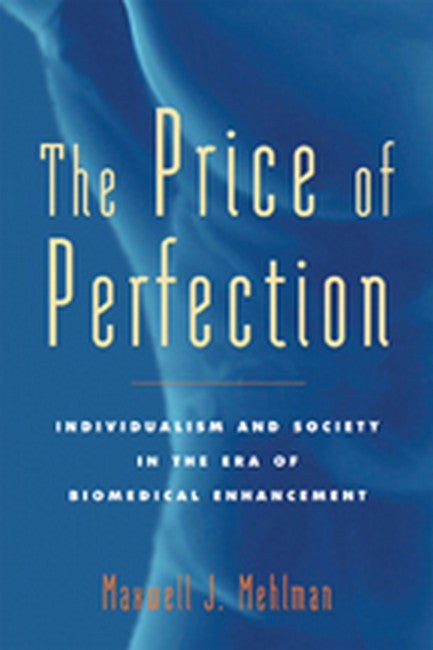Few would question the necessity of artificial limbs for amputees. But what of surgery to lengthen the legs of children who are merely shorter than average? Hardly anyone would challenge the decision to prescribe Aricept to people with dementia. But is it acceptable to give the same medication to airline pilots seeking sharper mental focus on long-haul flights? Humans have engaged in biological self-improvement since long before recorded history, from the impotence-curing wild lotus brew of the ancient Egyptians to the herbal energy drink favored by early Olympians. Now biomedical enhancements are pushing the boundaries of possibility and acceptability. Where do we draw the line? How do we know the true ramifications of pioneering medicine? What price are we willing to pay for perfection? Maxwell J. Mehlman's provocative examination of these issues speaks to fundamental questions of what it means to be human. He finds public officials ill equipped to handle the ethical, scientific, and public policy quandaries of biomedical enhancement. Instead of engaging difficult questions of morality, access, fairness, and freedom, elected officials have crafted toothless and counterproductive laws and regulations. Mehlman outlines policy options to boost the societal benefits and minimize the risks from these technologies. In the process, he urges the public to face the ethical issues surrounding biomedical enhancement, lest our quest for perfection compromise our very humanity.''In this book, Professor Mehlman shows precisely why those who oppose most forms of enhancement and optimization are at best confused. American culture constantly sells us the myth of the meritocracyyou deserve what you have because you earned it. The moral foundation of our economic system depends on the persuasiveness of this myth.Drugs that improve performance or level the competitive playing field threaten this core cultural belief. It is, as Mehlman elegantly argues, not so much that bioengineering perfection threatens to undermine fairness but rather that our mythic and fragile view of fairness is so threatened by the latest technologies of improvement. Anyone fascinated by the emerging battle over the morality of perfecting mankind ought to read this book.''Arthur Caplan , University of Pennsylvania''We humans will never be 'perfect,' but Max Mehlman persuasively explains why Americans will nonetheless continue to try whatever we think might make us 'better' and keep us on the road to perfection.''George J. Annas, author of American Bioethics

